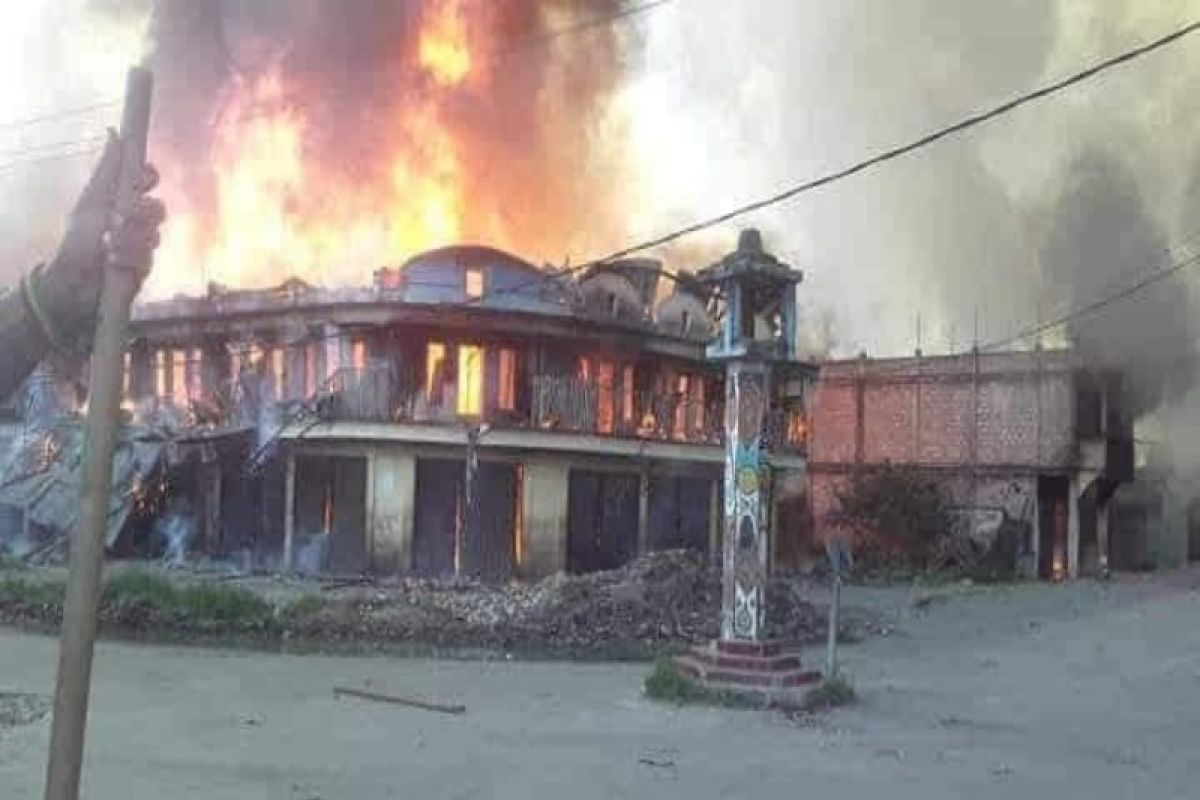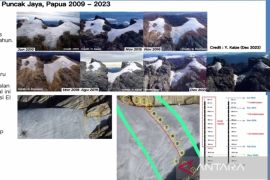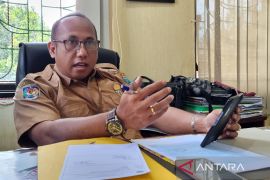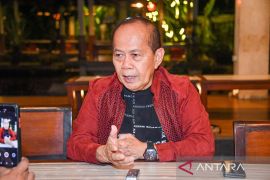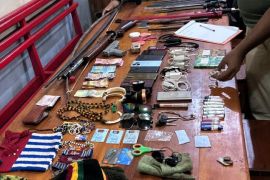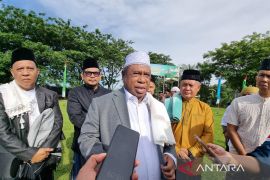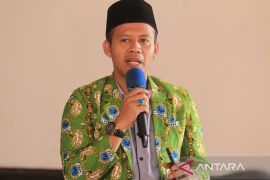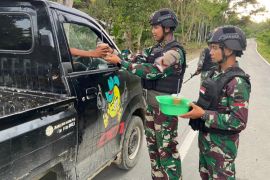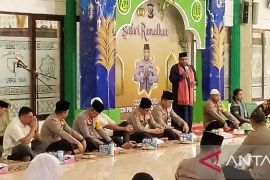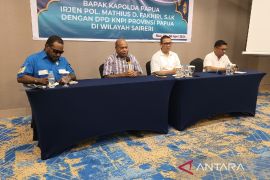We do hope that the dialogue can be held during his second leadership termBogor, W Java (ANTARA) - President Joko Widodo (Jokowi) and Vice President Ma'ruf Amin officially took their oaths of office on Sunday but they have no time for "honeymoon" as Indonesia has been facing tremendous domestic and global challenges over these past months.
One of the serious challenges that the Jokowi-Amin administration should immediately address is related to the issues of Papua because a circle of violence remains unbreakable there, and an ongoing endeavor to internationalize it is so obvious.
Those attempts to internationalize the issues of Papua, particularly human rights abuses and calls for self-determination are not merely non-state actors but also state actors, as revealed by what Vanuatu has often done at the UN General Assembly.
The circle of violence which is mainly triggered and sponsored by notorious armed Papuan separatists through their ongoing campaigns of killing innocent civilians and members of Indonesian military and police has yet to get ended.
Over these past two months, a spate of violence broke out in several parts of Papua and West Papua in the upshot of the Surabaya incident and fake news that had triggered public ire among native Papuans.
On August 28, for instance, violence broke out in Deiyai District, some 500 kilometers away from Jayapura, resulting in the deaths of an army soldier and two civilians.
Protests were again held on August 29 by the indigenous Papuan residents of Jayapura, as they vented their ire over the alleged racist behavior against their Papuan compatriots in Surabaya, but their rally then turned violent.
Then, on September 23, a deadly riot had erupted in Wamena, the capital city of Jayawijaya District, Papua Province, killing 33 civilians, including a senior medical doctor, who had served the native Papuans for 15 years.
By considering the seriousness of these crucial problems with their political, security, and socio-economic implications on the native and non-native Papuans as well as Indonesia as a nation and state, the Jokowi-Amin administration must solve them comprehensively.
Indeed, the Papuan people are keen to find solutions to the crucial problems in Papua through a dialogue.
Esmon Welilo, a Papuan priest who is also chairman of the Interreligious Harmony Forum (FKUB), has called on President Jokowi to hold the dialogue with the representatives of all Papuan community groups to resolve the problems in the aftermath of his inauguration.
They are keen to have a discussion within the spirit of the Unitary State of the Republic of Indonesia as the central government had done in Aceh Province. "We do hope that the dialogue can be held during his second leadership term," he said recently.
Jokowi is the first Indonesian president who has made 12 working visits to Papua, including three times to Wamena. Under his leadership, it is time for the central government to hold a dialogue to seek comprehensive solutions to the problems in Papua.
Esmon Welilo believes that all the Papuan people will keep supporting the government's programs.
Actually, the call for holding a dialogue with President Jokowi had also been echoed by West Papua Governor, Dominggus Mandacan, on September 12, 2019.
Mandacan said he awaited the president's readiness to meet West Papua's local leaders of various ethnic groups to listen to and comprehend their aspirations following the recent Surabaya incident that infuriated native Papuans.
He had held a series of meetings with communities from various ethnic groups in West Papua and had gained a broader understanding of their collective aspirations over the Surabaya incident and recent rioting that broke out in the province.
The collective aspirations of the ethnic groups and communal organizations in West Papua expressed and recorded during the meetings had been submitted to the central government by maintaining their originality.
Currently, he awaits President Jokowi's readiness to discuss the people's aspirations, he explained. Known as the Arfak ethnic group leader, Mandacan said the incumbent president is expected to comprehensively respond to the people's collective aspirations.
Related news: Wamena riot survivors are still traumatized: Wiranto
Responding to the query on President Jokowi's meeting with 61 figures of Papua and West Papua at the State Palace in Jakarta on Sept 10, Mandacan admitted to being unaware of it, since as a governor and leader of the Arfak ethnic group, he was certain of not having issued any recommendation and insightful inputs on the nine aspirations that the meeting's participants had expressed.
Mandacan revealed that he came to know of the recent meeting after watching a TV news bulletin and claimed to not know the figures partaking in the meeting with the president.
"I do not know the number of those representing West Papua and Papua. Speaking about leaders of customary communities and ethnic groups, I am also an ethnic group leader. I became aware of the meeting after watching TV," he noted.
The 61 figures present at the meeting with President Jokowi did not represent the entire community members, both native and non-native Papuans, in West Papua, he pointed out.
He deplored the recent meeting but supported President Jokowi's plan as a follow-up of the nine aspirations voiced at the State Palace's meeting.
Mandacan clarified that West Papua's present situation has been secure, and the people, at large, are urged to keep it conducive. Moreover, Internet access has been restored.
Related news: Lesson learned from Wamena rioting
The recent meetings with several Papuan figures that President Jokowi initiated at the State Palace prior to his presidential inauguration remain unable to end the circle of violence as revealed in the deadly Wamena rioting which broke out on Sept 23.
Instead, the circle of violence keeps on threatening innocent civilians in Papua and West Papua. This reality has made so many ordinary Indonesians deeply concerned.
On the day President Jokowi and Vice President Ma'ruf Amin took their oaths of office, musician Glenn Fredly sent a message of peace for the homeland of Papuans while performing at the Music for Republic concert on Cibubur Camping Ground, Bogor District.
"Papua represents the eastern part of Indonesia, and I think, voicing eastern Indonesia is undoubtedly important," said Fredly who sang several songs showcasing his great hope for the land and people of Papua, such the "Land of Promise" and "Yamko Rambe Yamko".
Related news: Musician Glenn Fredly echoes message of peace for Papua
Related news: Stay alert, Papua police chief warns Mimika policemen
Editor: Fardah Assegaf
Copyright © ANTARA 2019
